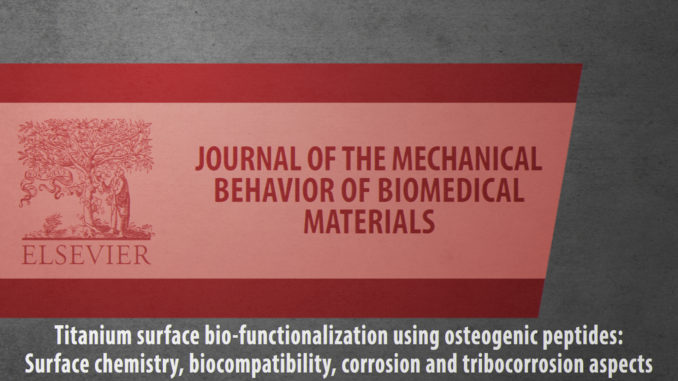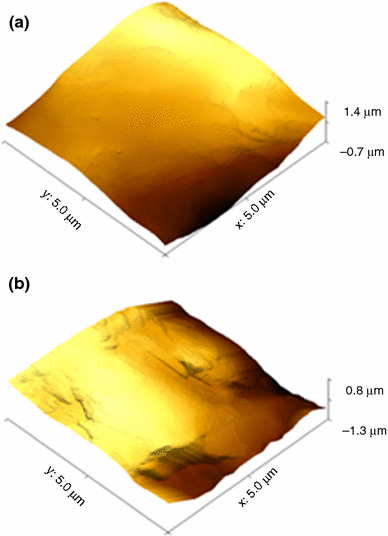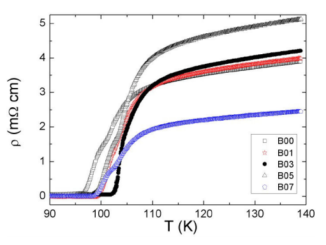
Titanium surface bio-functionalization using osteogenic peptides: Surface chemistry, biocompatibility, corrosion and tribocorrosion aspects
Abstract: Ti was modified with TiO2, two different spacers, 3-(4-aminophenyl) propionic acid (APPA) or 3-mercaptopropionic acid (MPA) and dentin matrix protein 1 (DMP1) peptides. X-ray photoelectron spectroscopy analysis revealed the presence of carbon and nitrogen for all samples, indicating a success in the functionalization process. Furthermore, DMP1 peptides showed an improved coverage area for the samples with APPA and MPA spacers. Biological tests indicated that the peptides could modulate cell affinity, proliferation, and differentiation. Enhanced results were observed in the presence of MPA. Moreover, the immobilization of DMP1 peptides through the spacers led to the formation of calcium phosphate minerals with a Ca/P ratio near to that of hydroxyapatite. Corrosion and tribocorrosion results indicated an increased resistance to corrosion and lower mass loss in the functionalized materials, showing that this new type of functional material has attractive properties for biomaterials application.
Author(s): Trino, LD; Bronze-Uhle, ES; Ramachandran, A; Lisboa, PN; Mathew, MT; George, A
JOURNAL OF THE MECHANICAL BEHAVIOR OF BIOMEDICAL MATERIALS
Volume: 81 Pages: 26-38 Published: MAY 2018
DOI: 10.1016/j.jmbbm.2018.02.024




